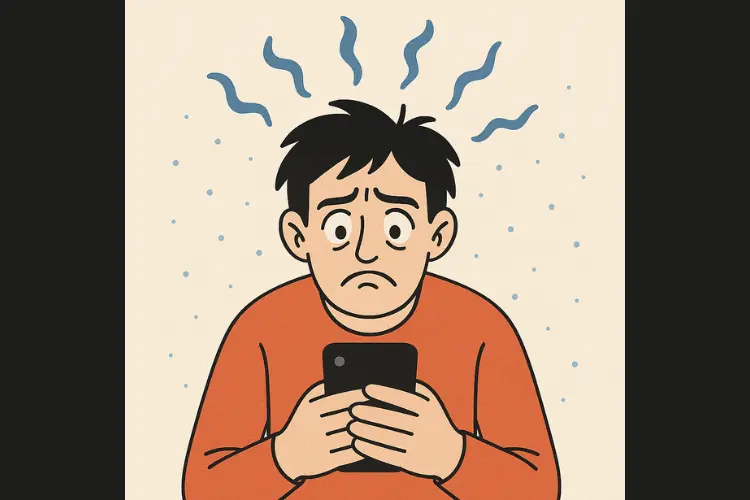Introduction
Social media is everywhere. From checking Instagram first thing in the morning to scrolling through TikTok before bed, it’s become a routine. For many, it’s a fun way to connect. For others, it may be a hidden problem. The question is: when does it go too far? Are you just a frequent user, or are you addicted to social media? This article uncovers four warning signs that may indicate social media is taking over your life. We’ll also explore what you can do to restore a healthy digital balance.
1. It’s Taking Over Your Responsibilities Skipping Real Life for Social Media? That’s a Red Flag
Do you delay work deadlines because you got caught up in memes? Do your kids ignore chores or homework in favor of YouTube or Snapchat? If so, it’s time to evaluate the impact.
One of the earliest signs of addiction is neglect. If you’re skipping important obligations – like work meetings, classes, or family dinners – social media may be interfering with real life. That’s a major red flag.
Start asking these questions:
- Do I miss sleep due to late-night scrolling?
- Have I canceled plans to stay online?
- Do I procrastinate important tasks because I’m checking social apps?
People often justify this behavior by saying social media helps them relax. But missing out on responsibilities can lead to a cycle of stress and guilt. And the more we turn to social media to escape, the deeper we fall into avoidance behaviors.
Action Tip: Schedule tech-free time blocks during your workday. Use apps to track time spent on each platform. Awareness is the first step toward change.
2. Losing Interest in Things You Once Loved When Hobbies Fade and Feeds Take Over
Used to love painting? Reading? Hanging out with friends in person? But now you scroll instead?
Losing interest in hobbies is a strong signal that something’s wrong. When your passions and in-person social life take a backseat to online browsing, it may be more than boredom. It could be emotional dependence.
This withdrawal from real-life activities isn’t just about time. It’s often tied to dopamine-driven behaviors. Social media provides quick rewards: a like, a share, a new follower. These short-term boosts can become more appealing than long-term fulfillment from hobbies.
For example, if your teen skips basketball practice to spend time on TikTok or constantly chooses gaming chats over real conversations, that’s a problem.
Real-life hobbies bring joy and balance. If those vanish, it’s time to examine what’s replacing them.
Action Tip: Reignite interest in old hobbies by setting goals. Join offline groups or clubs to stay accountable. Try a digital detox weekend to reconnect with what you used to enjoy.
3. You Can’t Stop Scrolling Impulsive Use: The Scroll You Just Can’t Quit
Check your screen time. Shocked? You’re not alone.
Impulse control is a clear indicator of addiction. Social platforms are designed to keep you hooked – with likes, notifications, and endless content.
Signs of decreased control include:
- Picking up your phone even without a reason
- Feeling “itchy” when you’re not scrolling
- Telling yourself “just 5 more minutes” but staying for hours
You may also experience something called “phantom vibrations”—thinking your phone is buzzing when it isn’t. That’s a neurological response to habitual behavior. The more often you check your phone, the more your brain expects stimulation.
Another sign is multitasking while on social media. For instance, using your phone during meals, meetings, or conversations reduces your attention span and weakens your real-world relationships.
Action Tip: Turn off non-essential notifications. Leave your phone in another room when working or spending time with family. Use browser extensions to block access to social media during work hours.
4. You’re Anxious When Disconnected Offline But Obsessed: The Craving That Won’t Quit
Ever feel panic when your phone battery runs low? Or feel left out if you miss a trending meme?
Social media cravings can mimic withdrawal symptoms. You might feel:
- Anxious when not connected
- Constantly thinking about what you’re missing online
- Compelled to check every notification immediately
This kind of behavior suggests emotional dependency. You crave validation, updates, and engagement. That’s not healthy.
In severe cases, people may feel depressed or irritable when they can’t access social media. This condition, sometimes referred to as “FOMO” (Fear of Missing Out), can negatively impact mental health.
Action Tip: Start the day without your phone. Set a designated check-in time for social media. Replace the habit with meditation, journaling, or a morning walk to ground your mind.
The Bigger Picture
Addiction doesn’t just affect one person. It affects families, friendships, and even professional performance. It leads to disconnection, increased stress, and poor sleep hygiene. By addressing it early, you protect not just your productivity but your emotional well-being too.
Recognizing the signs is a brave first step. Acting on them is where change happens.
Conclusion: Take Control Before It Controls You
Social media can be a great tool. But when it starts interfering with real life, it’s time to make a change. If you’re missing deadlines, losing interest in passions, struggling with impulse control, or feeling anxious without your phone, you might be addicted.
Luckily, there are solutions. Try setting time limits, taking breaks, and using technology to your advantage.
That’s where CleanRouter can help. CleanRouter gives parents and families control over internet use. With features like customizable filters, usage monitoring, and time restrictions, it can help reduce excessive screen time and build healthier habits.
With CleanRouter, you create a safer, healthier digital environment at home. Don’t let social media run your life. Reclaim your time. Protect your peace. Start making small changes today – and take back control.




